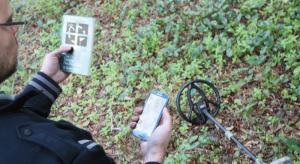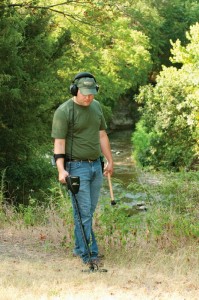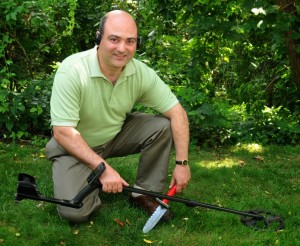Every master tradesman has a toolbox full of the things he needs to ply his trade. A carpenter has hammers and nails, a mechanic has screwdrivers and wrenches, and an electrician has wire snips and needle-nose pliers. Geocachers are no different; they also need to fill their toolbox with the right tools in order to complete their treasure-hunting missions. Having just the right gadget for the job at hand, can make all the difference and add to the excitement.
Ask a bunch of geocachers what they carry in their packs or kits, and you will likely get a bunch of different answers. Most geocachers will agree that there are a number of items that every hunter must have, but there are also some that are influenced by the local weather and terrain, some that are dictated by the hunter’s level of experience, and some that are simply personal preference. Every geocacher needs a GPS device of some sort, a compass, a pen or pencil to add your entry to the logbook, some geoswag to leave or swap with items in the cache, a flashlight, drinking water, and a first aid kit – just in case!
So you’ve got your basics, what else can you add to your toolbox to make your hunting easier and more fun? Maybe you would like to bring along a camera to document your search or to photograph your findings so you can post pictures on your Facebook page. Perhaps some binoculars for checking out the wildlife or scenery as you close in on your coordinates. If the geocache you are hunting is hidden in a rocky area or up a steep climb, you might want to take a walking stick along. To more experienced hikers, that may seem silly, but one good save from a fall will make it all worth it
 More and more geocachers are using metal detectors while on the hunt. There are several ways that adding a metal detector to your geocaching toolbox will enhance the adventure. Geocache containers are to be hidden within 20 feet of their given coordinates, making the area to be searched fairly large. Many of these containers are made of metal, or at least contain some metal parts, so a metal detector can make finding the container quicker and easier, especially if it is partially or completely covered by dirt, or hidden in the brush. For the avid hunter, a metal detector also makes it possible to geocache year-round. In colder climates, where there is snowfall in the winter, a metal detector comes in handy locating treasure covered by snow, and die-hard hunters don’t have to take a break for the season. If you geocache as a family, allowing the kids to use a detector while you hunt for a well-hidden cache may provide them (and you) a much needed distraction from the patience required, while still allowing them to feel involved in the game. Be sure to bring a whistle for the kids (a good safety item for everyone, really), and of course, you’ll have to throw some snacks in there, too.
More and more geocachers are using metal detectors while on the hunt. There are several ways that adding a metal detector to your geocaching toolbox will enhance the adventure. Geocache containers are to be hidden within 20 feet of their given coordinates, making the area to be searched fairly large. Many of these containers are made of metal, or at least contain some metal parts, so a metal detector can make finding the container quicker and easier, especially if it is partially or completely covered by dirt, or hidden in the brush. For the avid hunter, a metal detector also makes it possible to geocache year-round. In colder climates, where there is snowfall in the winter, a metal detector comes in handy locating treasure covered by snow, and die-hard hunters don’t have to take a break for the season. If you geocache as a family, allowing the kids to use a detector while you hunt for a well-hidden cache may provide them (and you) a much needed distraction from the patience required, while still allowing them to feel involved in the game. Be sure to bring a whistle for the kids (a good safety item for everyone, really), and of course, you’ll have to throw some snacks in there, too.
Many geocachers also bring some replacement parts in their packs as well. You never know when a logbook may have gotten wet and needs to be changed out for future geocachers, or if a container has been damaged in some way. It’s a caching courtesy to take care of the treasure so others can continue to experience the thrill of finding the prize.
The items in your geocaching toolbox are likely to grow and change as you go about your hunting. Take what works for you and have a great time on your adventures!
 Gene Knight is the Director of Sales at Kellyco Metal Detectors and an avid treasure hunter.
Gene Knight is the Director of Sales at Kellyco Metal Detectors and an avid treasure hunter.
Contact him:
Phone: U.S. Toll-Free: 1-888-535-5926
Others: 407-699-8700
Extension: 106
Email: gknight@kellycodetectors.com

